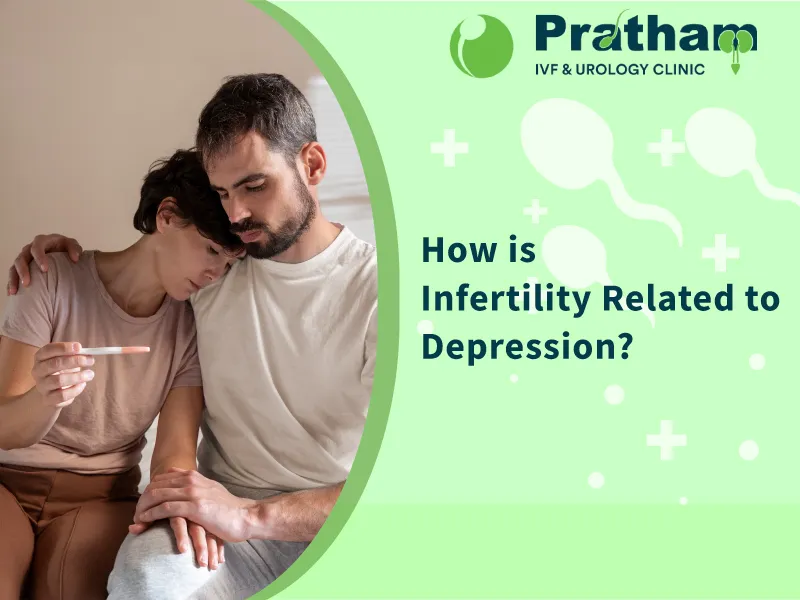
What's the Relation Between Infertility and Depression?
Infertility and depression are closely connected, making an emotional cycle that can be challenging to face. Struggling to conceive can lead to feelings of frustration, guilt, and anxiety, which, over time, may develop into depression. The stress of infertility treatments, financial strain, and societal pressure further add to emotional distress. Many people feel alone, misunderstood, or useless as a result of their failure to conceive.
Depression can also impact fertility itself by affecting hormone levels and overall wellness. The physical effects can involve changes in food, difficulty sleeping, and a lack of desire, which may indirectly influence reproductive health. Seeking emotional support, whether through counseling, support groups, or mindfulness practices, can help manage both infertility and its psychological effects. Pratham IVF Center offers comprehensive care, addressing both the healthcare and emotional aspects of infertility to help individuals and couples on their journey to parenthood.
Emotional Strain and Stress
- Prolonged Stress: The emotional rollercoaster of hope, anticipation, and disappointment that accompanies each attempt to conceive can lead to chronic stress. As fertility treatments progress, the added uncertainty can amplify stress, further influencing mental health and increasing the risk of depression.
- Self-Worth and Identity: Infertility can challenge one's sense of self-worth. Many individuals may feel inadequate or like failures, which impacts their mental well-being. The pressure to become parents can trigger feelings of shame or guilt, lowering self-esteem and intensifying emotional struggles.
Relationship Strain
Infertility doesn't only affect the individual—relationships can also bear the emotional weight. Coping with fertility issues may cause couples to experience conflicts, misunderstandings, or even emotional distance. Social interactions may feel uncomfortable or isolating, particularly when couples are surrounded by friends or family members who have children. This sense of disconnection can deepen feelings of loneliness and despair.
Hormonal and Physical Impact
- Hormonal Changes: The hormonal fluctuations caused by infertility and related treatments can directly influence mood regulation. These changes may increase the likelihood of experiencing mood swings, irritability, or even depressive symptoms.
- Physical and Emotional Exhaustion: Fertility treatments often come with physical demands, such as multiple doctor visits, medications, or invasive procedures, which can lead to both physical and emotional exhaustion. This exhaustion can wear down emotional resilience and contribute to feelings of hopelessness or depression.
Coping Strategies and Support
Navigating the emotional challenges of infertility and depression requires coping strategies and external support. Seeking help through support groups, therapy, or counseling can offer a safe space to discuss feelings, alleviate stress, and receive emotional guidance. Additionally, engaging in healthy coping mechanisms like mindfulness practices, regular exercise, or pursuing creative outlets can improver emotional well-being and help manage the strain.
By taking steps to address both the physical and emotional aspects of infertility, individuals and couples can improve their overall mental health and better cope with the emotional challenges they face.
 Ahmedabad Top Rated IVF Center
Ahmedabad Top Rated IVF Center




